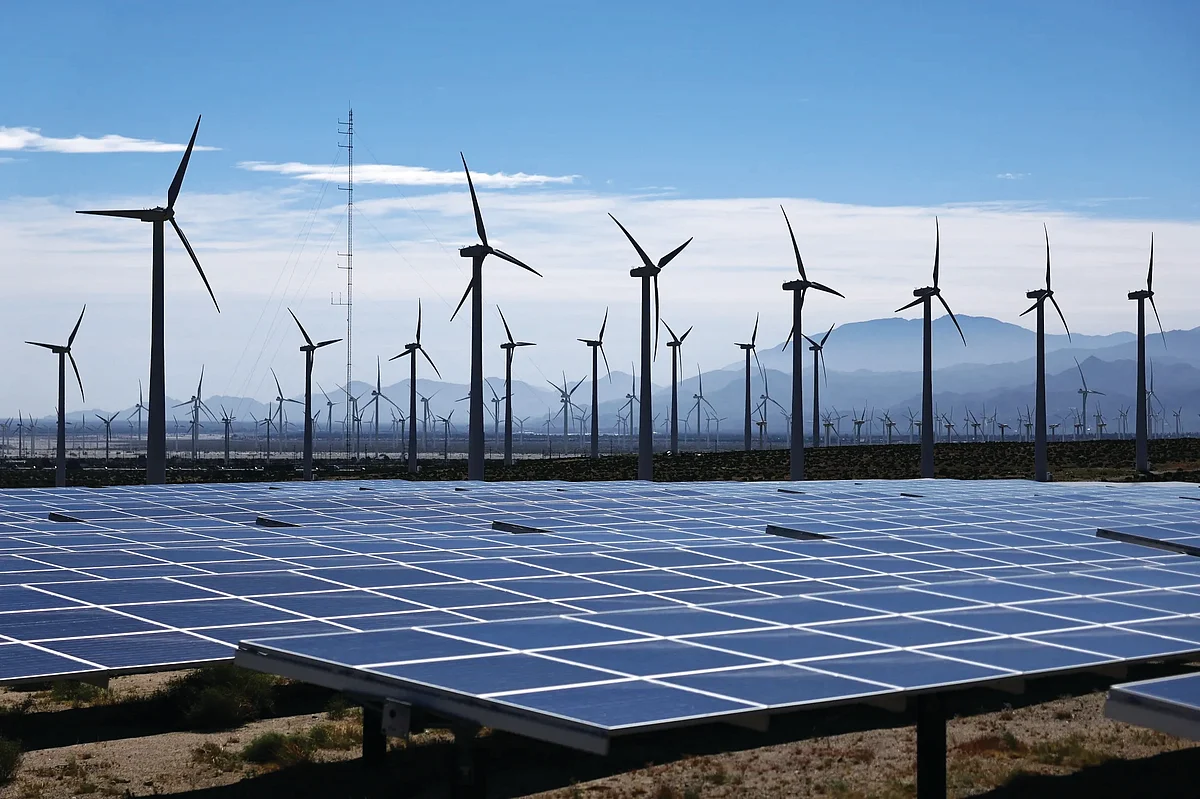
UAE Renewable Energy: Adipec 2025 Highlights Strategic Advances
As global attention turns once again to Abu Dhabi for Adipec 2025, the UAE's renewable energy strategy has come into sharper focus. What was once a national ambition has become a practical roadmap, reinforced by large-scale investments, international collaboration and digital innovation that is transforming how energy is generated and managed.
The UAE's Energy Strategy 2050, first unveiled in 2017, set out to reshape the country's energy mix by tripling the contribution of renewables by 2030. The target forms part of a broader framework to reduce carbon emissions, diversify energy sources and ensure long-term resilience in a global economy still reliant on fossil fuels.
Recommended For YouThe UAE's progress on clean energy is visible across multiple fronts. The Mohammed Bin Rashid Al Maktoum Solar Park in Dubai, one of the world's largest single-site solar projects, continues to expand capacity while reducing the cost of solar electricity to record lows. In Abu Dhabi, Masdar's international investments in renewable energy now span more than 40 countries, positioning the company as one of the largest clean energy developers in the world.
These projects reflect the government's strategy to align energy policy with economic growth. Clean energy is seen not only as a climate commitment but also as a competitive advantage in a market where investors are increasingly drawn to sustainable industries.
“Meeting the world's growing demand for energy requires an intelligent and pragmatic approach that embraces all viable sources and technologies,” said Abdulmunim Al Kindy, Chairman of Adipec 2025.“Adipec will convene the AI-energy nexus to unlock the solutions and investments needed for a resilient, inclusive future.”
The upcoming conference is expected to build on this philosophy, connecting innovation with investment and offering a space where public and private sectors can shape the next phase of the UAE's energy transition.
Technology driving transformation
The integration of artificial intelligence and digital infrastructure into energy systems has become one of the defining features of the UAE's approach. By 2030, AI-powered energy systems and smart grids could unlock up to $1.3 trillion in global economic value, according to Adipec data. The same technology, research from Google suggests, could reduce global greenhouse gas emissions by 5% to 10%, equivalent to the annual emissions of the entire European Union.
In the UAE, such digital transformation is already under way. At the Digitalisation Zone within Adipec 2025, companies will demonstrate how data, automation and AI are making renewable systems more efficient and reliable. Predictive analytics tools are now being used to forecast energy output, manage consumption and improve the integration of renewables into existing power grids.
The focus on technology also extends to hydrogen. The UAE's investments in green and blue hydrogen are growing, with pilot projects testing large-scale production for domestic use and export. Hydrogen is increasingly viewed as a critical element of the country's long-term strategy to decarbonise heavy industry and transport.
Policy and infrastructure
The Global Strategy Programme at ADIPEC will address the broader challenge of how countries can finance and sustain such transitions. Panels will discuss infrastructure investment, grid resilience, energy diversity and new financing models that support the shift towards cleaner systems. The UAE's policy environment, marked by clear regulatory frameworks and strong public-private partnerships, will feature prominently as a case study.
“The theme reflects the UAE's integrated approach to energy, where every decision must deliver measurable impact,” said Suhail Mohamed Faraj Al Mazrouei, Minister of Energy and Infrastructure. His statement summarises the government's philosophy that progress must be both sustainable and economically sound.
Industry participation will also play a significant role. Manoj Tripathy, CEO of Kanoo Industrial and Energy, said his company views ADIPEC as an opportunity to connect heritage with innovation.“We are uniting that heritage with modernisation, localised expertise and sustainability-focused solutions,” he said.
Resilience and the road ahead
As the UAE advances toward its Net Zero by 2050 target, ADIPEC 2025 will serve as a checkpoint on how far the transition has come and how far it still needs to go. The discussions will move beyond ambition to examine the practical systems and partnerships required to ensure energy security in a renewable-driven economy.
While human and artificial intelligence each play their part in this transformation, the underlying challenge remains structural. The world still depends on existing energy systems, yet those systems must evolve to meet new expectations of efficiency and responsibility. ADIPEC 2025 will bring that tension into focus, offering insight into how economies like the UAE's are navigating both continuity and change.
From solar and hydrogen to AI and policy, the UAE's strategy represents a model of how a resource-rich nation can use its advantages to shape a cleaner, more resilient energy future. ADIPEC 2025 will not just showcase this progress, it will test how ready the world is to follow the same path.

Legal Disclaimer:
MENAFN provides the
information “as is” without warranty of any kind. We do not accept
any responsibility or liability for the accuracy, content, images,
videos, licenses, completeness, legality, or reliability of the information
contained in this article. If you have any complaints or copyright
issues related to this article, kindly contact the provider above.

















Comments
No comment